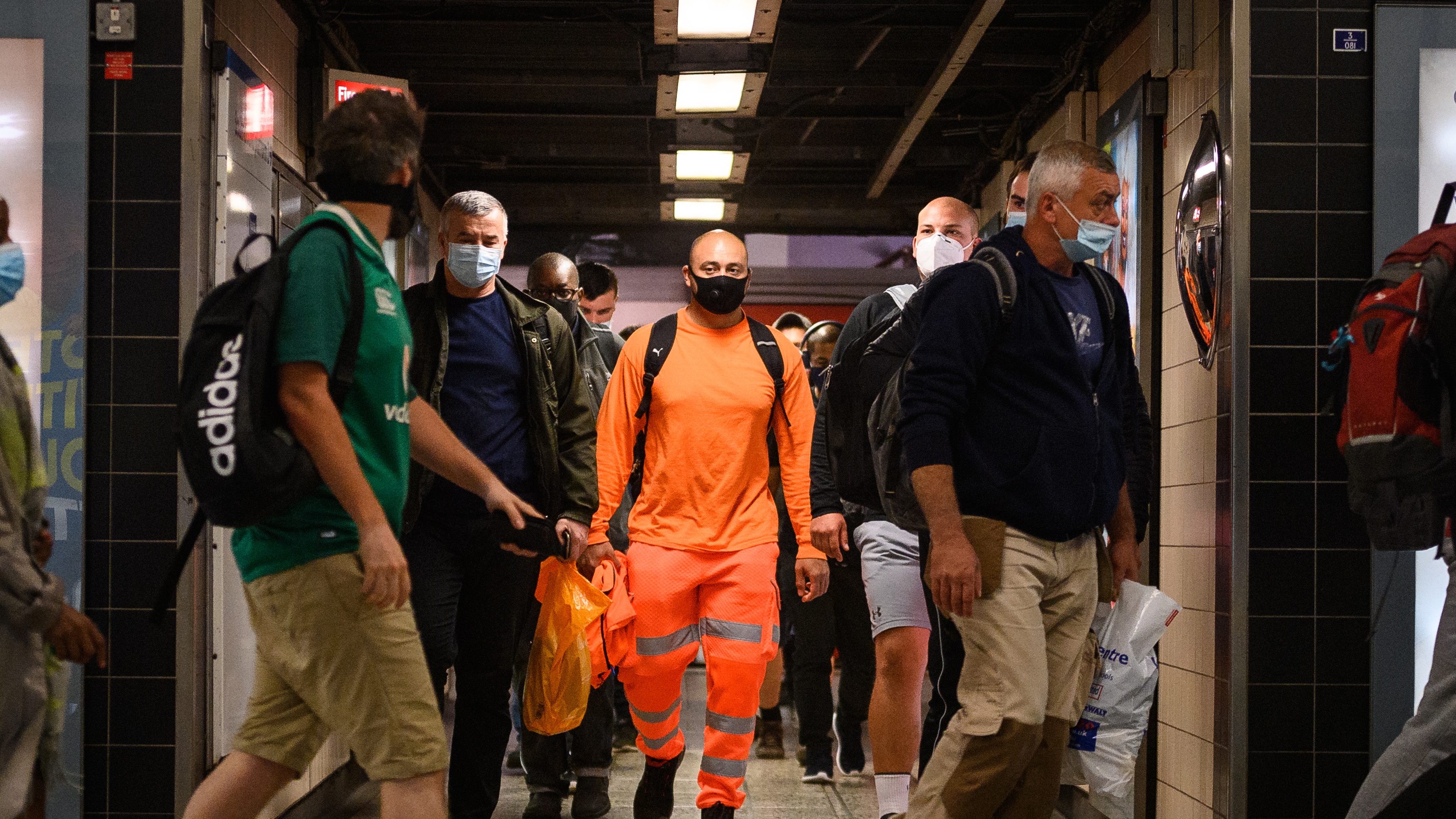Coronavirus: why the WHO is warning of a third Covid-19 wave in Europe next year
UN health agency’s pandemic envoy cautions against lifting lockdown restrictions too early

A free daily email with the biggest news stories of the day – and the best features from TheWeek.com
You are now subscribed
Your newsletter sign-up was successful
Europe may face a third deadly wave of coronavirus in early 2021 if governments lift lockdown measures too early, the World Health Organization’s (WHO) Covid-19 envoy has warned.
Speaking to Swiss newspaper Solothurner Zeitung, Dr David Nabarro said that governments had “missed building up the necessary infrastructure during the summer months, after they brought the first wave under control”.
“Now we have the second wave. If they don’t build the necessary infrastructure, we’ll have a third wave early next year,” London-born Nabarro continued. “Another element that is very clear in East Asia is that once you have brought down the case number... you don’t relax the measures.”
The Week
Escape your echo chamber. Get the facts behind the news, plus analysis from multiple perspectives.

Sign up for The Week's Free Newsletters
From our morning news briefing to a weekly Good News Newsletter, get the best of The Week delivered directly to your inbox.
From our morning news briefing to a weekly Good News Newsletter, get the best of The Week delivered directly to your inbox.
Describing Europe’s response to the pandemic as “incomplete”, he added: “You wait until the case numbers are low and stay low. You have to prepare the necessary measures to stop future outbreaks.”
European Commission President Ursula Von der Leyen has also warned that “some European countries were too eager to lift lockdown measures after the first wave”, Politico reports.
Speaking at an online news conference last month alongside her pandemic special advisor, Belgian virologist Peter Piot, Von der Leyen said that “if you look back, you can see that a lot of things were done in the right direction in the first wave, but obviously the exit strategies were partly too fast, and measures were relaxed too soon”.
A string of European countries are currently battling a second wave of the virus, with nations including the UK, Austria, France, Germany and Italy imposing restrictions of varying severity. However, Boris Johnson is considering relaxing lockdown restrictions in England over the Christmas period to allow limited household mixing.
A free daily email with the biggest news stories of the day – and the best features from TheWeek.com
The results of a series of vaccine trials have raised hopes that an end to the global health crisis may be in sight.
But Hans Kluge, the WHO’s regional director for Europe, cautioned in September that “the vaccine is not going to be the end of the pandemic”.
“The end of the pandemic is going to be when we as people learn to live with the pandemic, and that can begin tomorrow,” he added.
Joe Evans is the world news editor at TheWeek.co.uk. He joined the team in 2019 and held roles including deputy news editor and acting news editor before moving into his current position in early 2021. He is a regular panellist on The Week Unwrapped podcast, discussing politics and foreign affairs.
Before joining The Week, he worked as a freelance journalist covering the UK and Ireland for German newspapers and magazines. A series of features on Brexit and the Irish border got him nominated for the Hostwriter Prize in 2019. Prior to settling down in London, he lived and worked in Cambodia, where he ran communications for a non-governmental organisation and worked as a journalist covering Southeast Asia. He has a master’s degree in journalism from City, University of London, and before that studied English Literature at the University of Manchester.
-
 Why is the Trump administration talking about ‘Western civilization’?
Why is the Trump administration talking about ‘Western civilization’?Talking Points Rubio says Europe, US bonded by religion and ancestry
-
 Quentin Deranque: a student’s death energizes the French far right
Quentin Deranque: a student’s death energizes the French far rightIN THE SPOTLIGHT Reactions to the violent killing of an ultraconservative activist offer a glimpse at the culture wars roiling France ahead of next year’s elections
-
 Secured vs. unsecured loans: how do they differ and which is better?
Secured vs. unsecured loans: how do they differ and which is better?the explainer They are distinguished by the level of risk and the inclusion of collateral
-
 Epstein files topple law CEO, roil UK government
Epstein files topple law CEO, roil UK governmentSpeed Read Peter Mandelson, Britain’s former ambassador to the US, is caught up in the scandal
-
 Iran and US prepare to meet after skirmishes
Iran and US prepare to meet after skirmishesSpeed Read The incident comes amid heightened tensions in the Middle East
-
 Grok in the crosshairs as EU launches deepfake porn probe
Grok in the crosshairs as EU launches deepfake porn probeIN THE SPOTLIGHT The European Union has officially begun investigating Elon Musk’s proprietary AI, as regulators zero in on Grok’s porn problem and its impact continent-wide
-
 Israel retrieves final hostage’s body from Gaza
Israel retrieves final hostage’s body from GazaSpeed Read The 24-year-old police officer was killed during the initial Hamas attack
-
 China’s Xi targets top general in growing purge
China’s Xi targets top general in growing purgeSpeed Read Zhang Youxia is being investigated over ‘grave violations’ of the law
-
 Panama and Canada are negotiating over a crucial copper mine
Panama and Canada are negotiating over a crucial copper mineIn the Spotlight Panama is set to make a final decision on the mine this summer
-
 Europe moves troops to Greenland as Trump fixates
Europe moves troops to Greenland as Trump fixatesSpeed Read Foreign ministers of Greenland and Denmark met at the White House yesterday
-
 Why Greenland’s natural resources are nearly impossible to mine
Why Greenland’s natural resources are nearly impossible to mineThe Explainer The country’s natural landscape makes the task extremely difficult